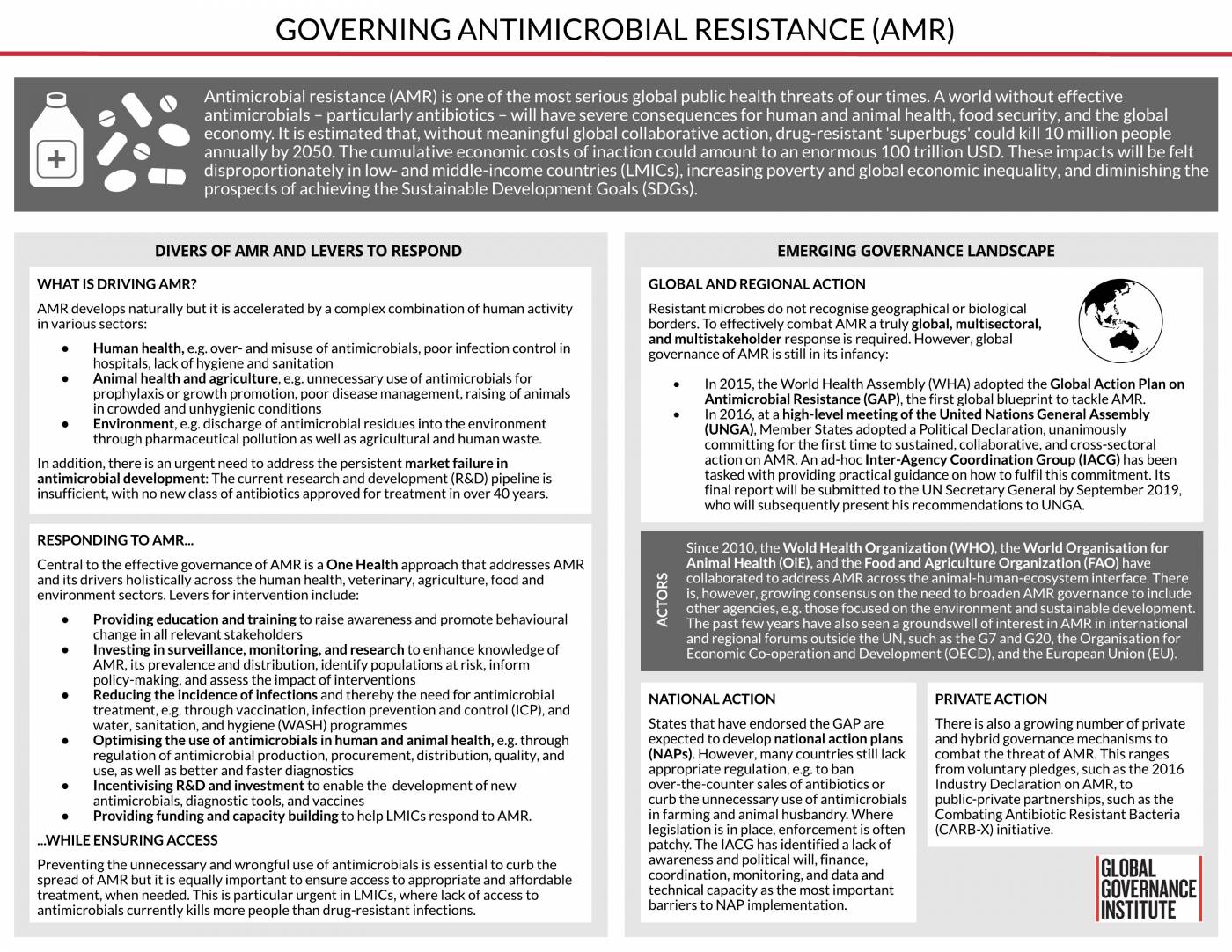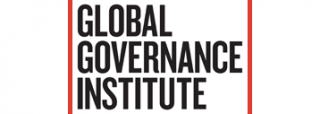Governing Antimicrobial Resistance (AMR)
8 November 2018
What drives antimicrobial resistance (AMR) and how can we respond? This GGI Explainer maps out an emerging AMR governance regime.

Julia Kreienkamp, UCL Global Governance Institute.
Antimicrobial resistance (AMR) is one of the most serious global public health threats of our times. A world without effective antimicrobials – particularly antibiotics – will have severe consequences for human and animal health, food security, and the global economy. It is estimated that, without meaningful global collaborative action, drug-resistant 'superbugs' could kill 10 million people annually by 2050. The cumulative economic costs of inaction could amount to an enormous 100 trillion USD. These impacts will be felt disproportionately in low- and middle-income countries (LMICs), increasing poverty and global economic inequality, and diminishing the prospects of achieving the Sustainable Development Goals (SDGs).
What drives AMR, why is it a global problem, and how can we respond? This GGI Explainer [click on link for a high resolution PDF version] maps out an emerging AMR governance regime.

 Close
Close


